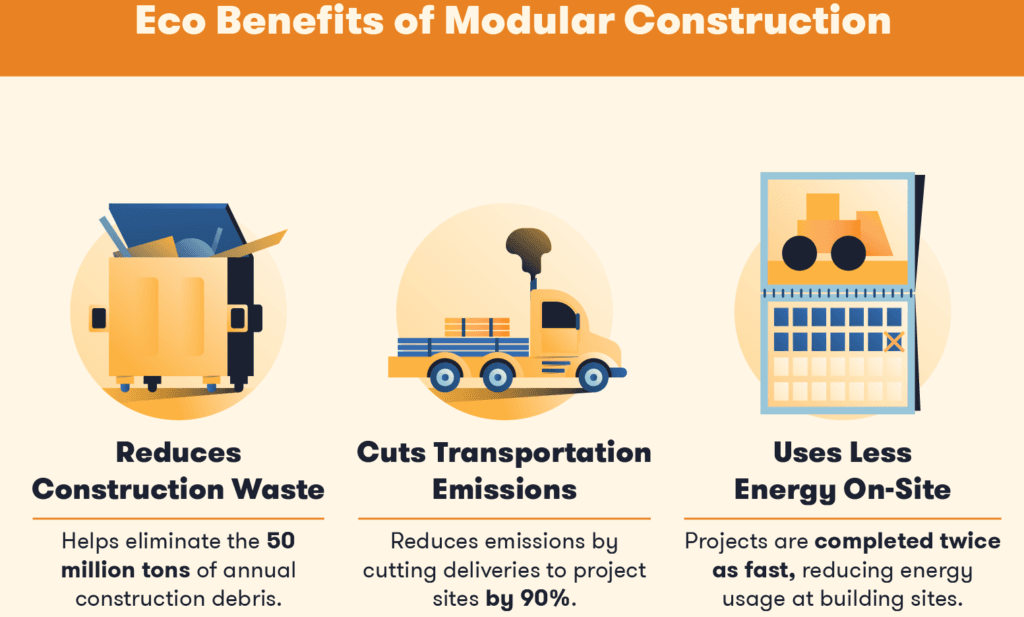Modular construction is transforming the way buildings are made, especially in Thailand. Known for its speed, cost efficiency, and environmental benefits, this technique is gaining ground in a country where the construction industry is growing quickly. According to GlobalData, Thailand’s construction market’s AAGR is expected to reach more than by 4% annually through 2028. This is making Modular Construction Thailand a critical solution to meet increasing demand. Whether for residential, commercial, or infrastructure projects, modular techniques offer significant advantages over traditional building methods.
Let’s look at how this innovative method is being implemented in Thailand!
Speeding Up Construction Projects
One of the most remarkable benefits of Modular Construction Thailand is its ability to drastically reduce project timelines. With traditional construction methods, completing a project can take months or even years. However, with modular construction, build times can be cut by up to 50%. This is because many components are pre-fabricated in factories and then transported to the construction site for assembly, saving valuable time.
In a fast-growing country like Thailand, this speed is essential. The Asian Development Bank (ADB) found that modular techniques can reduce project time by 30-50%, especially for large urban developments and hospitality projects. Faster completion of buildings means quicker returns on investment, making modular construction highly attractive for developers.
As cities like Bangkok grow, the pressure on traditional construction methods is mounting. Modular Construction Thailand offers a solution that not only meets these demands but also does so in a more efficient and sustainable manner.
Modular Construction Thailand and Cost Efficiency
In addition to saving time, modular construction can also help reduce project costs. By manufacturing building components in a controlled factory setting, companies can lower costs by 10-20%. This is mainly due to the reduced need for on-site labor and fewer delays caused by weather conditions, which are common in traditional construction methods.
These cost savings are particularly relevant for Thailand’s residential construction sector, where there is high demand for affordable housing. Being able to lower costs while maintaining high-quality standards is an appealing solution to help meet Thailand’s growing housing needs.
Environmental Benefits of Modular Construction

Beyond speed and cost, Modular Construction Thailand offers significant environmental benefits. Sustainability is becoming an increasingly important consideration in Thailand’s construction sector. Traditional construction methods are known for generating high levels of waste and emissions. In contrast, modular techniques can reduce waste by up to 90%. This is because factories use precise measurements and efficient materials to build components, resulting in far less waste than on-site construction.
Moreover, modular construction in Thailand can help cut CO2 emissions by 30-45%. The lower emissions come from energy-efficient factory production and reduced transportation needs. This is particularly relevant to Thailand’s efforts to cut its carbon emissions by 20-25% by 2030, as part of its commitments under the Paris Agreement. By implementing modular construction techniques, Thailand can work towards its environmental goals while still meeting the growing demand for new buildings.
Modular construction is proving to be a viable solution to the challenges faced by Thailand’s construction industry. Its ability to save time and money makes it a vital part of the future of construction in the country. As Thailand continues to grow and urbanize, Modular Construction Thailand offers a path forward that is both sustainable and efficient.

